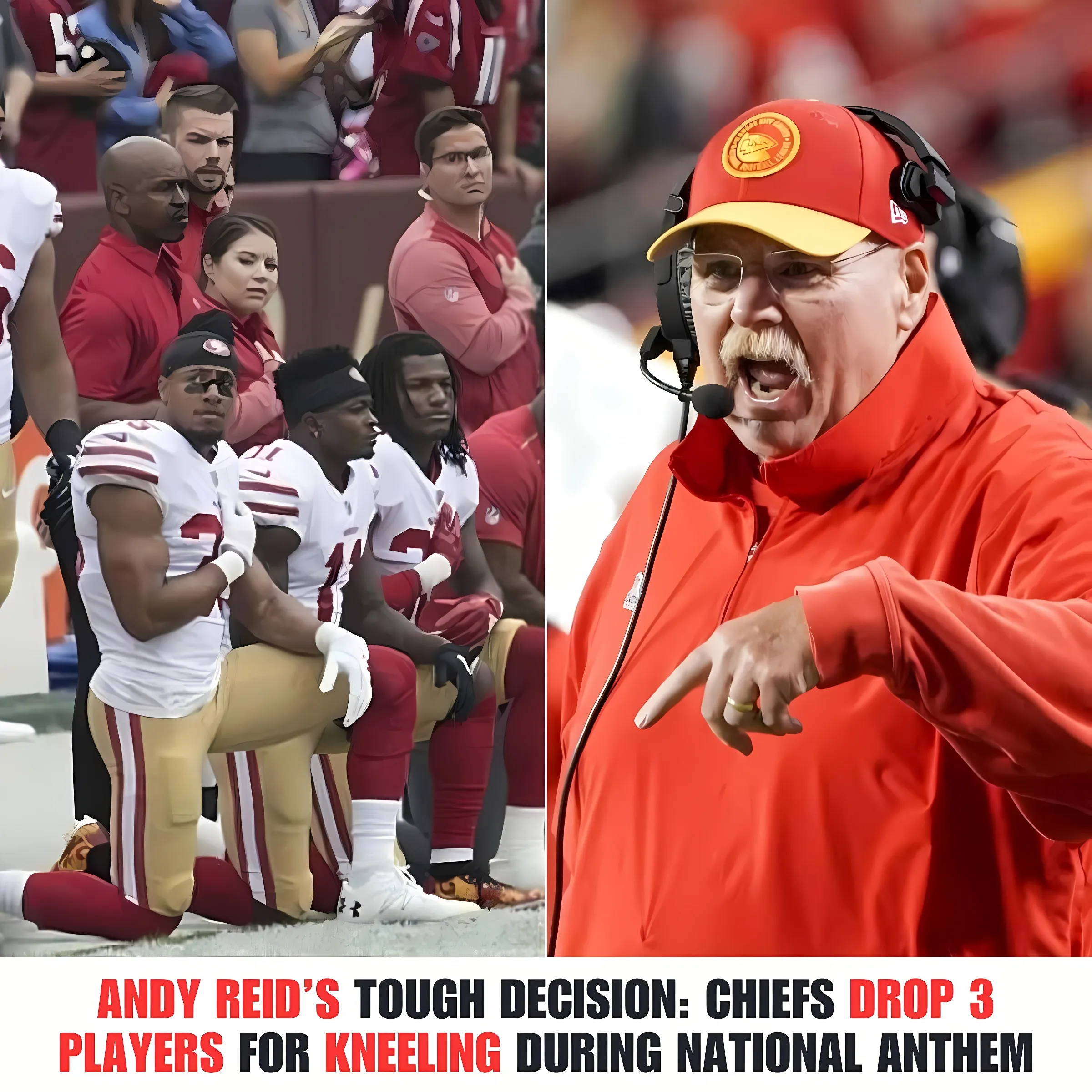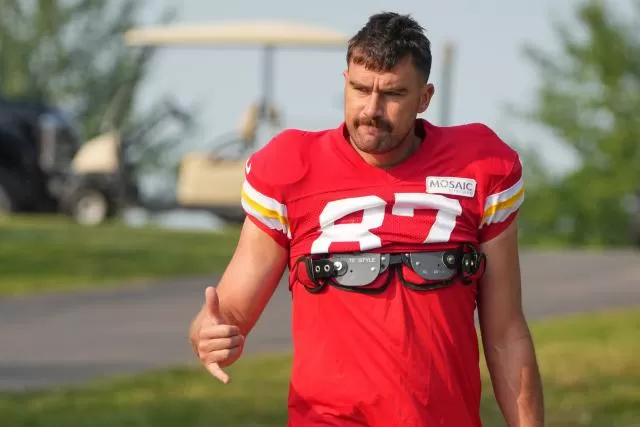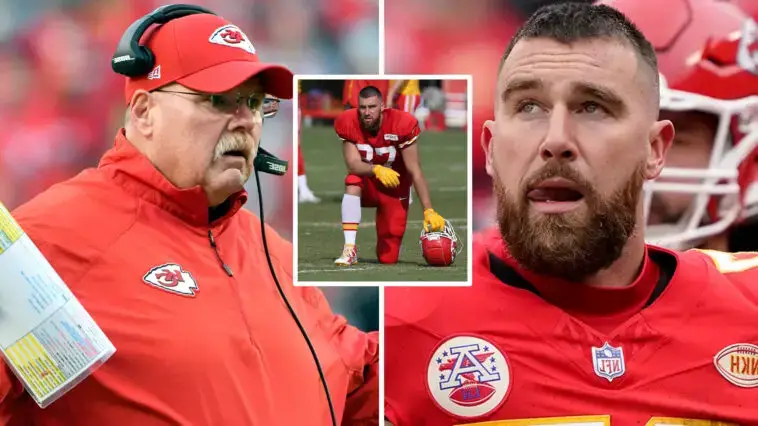In a move that has sent shockwaves through the sports world, Kansas City Chiefs Head Coach Andy Reid made headlines last week by dismissing three players for kneeling during the national anthem. Reid’s firm declaration, “Not on my field,” has ignited a heated debate over the intersection of sports, politics, and personal beliefs.

The incident occurred just before a game, as the players knelt in a gesture meant to protest social injustices. The packed stadium fell silent, the players’ actions casting a shadow over the event. Reid, known for his strong commitment to team unity and respect for the flag, responded decisively, signaling their immediate removal from the team.

Reid’s decision has prompted a flood of reactions, with fans and commentators voicing their opinions across social media. Supporters praise his dedication to patriotism and traditional values, while critics argue that his actions infringe on the players’ rights to free speech. They contend that peaceful protest is a cornerstone of democracy and should be respected, especially in the context of professional sports, which often serve as a platform for social commentary.
This situation taps into a broader national conversation about kneeling during the anthem, a gesture popularized by former NFL quarterback Colin Kaepernick in 2016, which has since polarized opinions on race, privilege, and patriotism. Reid’s decision has thrust this dialogue into the spotlight, challenging fans, players, and officials to reflect on their positions within this ongoing cultural discourse.
Legal experts and civil rights advocates are weighing in on the implications of Reid’s actions, questioning the balance between an employer’s authority and an individual’s right to express personal beliefs. The NFL, caught in this contentious debate, faces pressure to clarify its stance on player conduct and political expression.

As the three dismissed players navigate the fallout, their protest—originally aimed at highlighting systemic injustices—has now placed them at the center of a fierce debate regarding loyalty, respect, and the role of athletes in society. Their futures in professional football are uncertain, but their actions have undeniably sparked conversations that extend far beyond the sport.
In conclusion, Andy Reid’s “Not on my field” statement is more than just a directive from a coach; it serves as a catalyst for broader discussions about freedom, responsibility, and the role of sports in effecting social change. As America grapples with these complex issues, the actions of Reid and the players underscore the ongoing need for dialogue, understanding, and respect for diverse perspectives in the pursuit of a more equitable society.